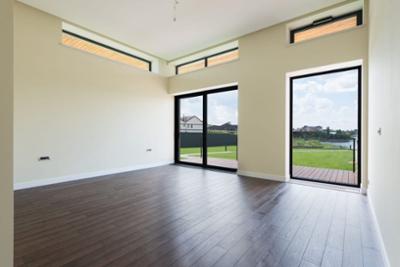

AEPA highlights hinged doors to create accessible environments

According to the Spanish National Statistics Institute, more than 3.39 million people in Spain have some degree of disability, of which up to 67.2% have limitations in moving or transporting objects, meaning that almost 7% of Spaniards face accessibility problems. In this context, swing doors play an essential role in the construction of accessible environments in Spain, as stated by AEPA, Association of Automatic and Manual Doors.
In AEPA's view, ensuring accessibility means providing equal opportunities for all people, regardless of their physical abilities. In this context, it adds that "swing doors, present in public buildings and houses, play a crucial role in facilitating or hindering the mobility of people, especially those with disabilities or reduced mobility".
It also points out that well-designed and properly installed doors are essential items in creating accessible environments. "Inadequate design can become an insurmountable obstacle in the daily lives of people with disabilities, limiting their independence and participation in society. It is therefore essential to adhere to specific guidelines and regulations to ensure full accessibility, from passage width to the safe detection of automatic doors.
Regulatory support
The Association emphasises the adaptation and compliance with specific regulations that are crucial to ensure the safety and accessibility of these elements in public and private buildings. "Legislation supports the rights of persons with disabilities, thus promoting equality and universal accessibility in communities. The evolution towards more accessible environments is an ongoing commitment that benefits society as a whole, and our task is to inform our partners and readers and to encourage them to implement these practices in their companies and facilities.




